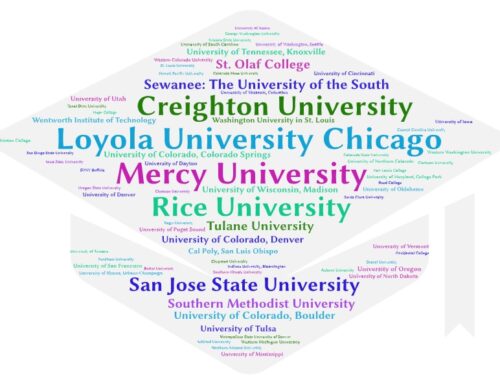Often, when I meet with potential clients, parents comment on how much more complicated and competitive the college admissions process is now, compared to when they went through it. They frequently make statements such as, “I only applied to two colleges,” or, “I don’t think I’d even get into my college if I applied today.”
Indeed, many parents hire a college consultant because they don’t feel equipped to help their children with a process that has changed so significantly in the last few decades. Unfortunately, due to a recent decision by the National Association for College Admissions Counseling (NACAC), the college admissions process is likely to become even more perplexing for everyone involved.
As mentioned in a recent blog post, NACAC members voted last fall to remove some provisions from the organization’s Code of Ethics and Professional Practices. These provisions prevented colleges from recruiting students who had already committed to another institution. Now, colleges can actively recruit students who have been admitted to another school under a binding early decision agreement. Colleges can also “poach” students who have already made a deposit and enrolled elsewhere. Finally, colleges can contact students who were previously admitted but decided to attend another school and can encourage those students to transfer. In all of these scenarios, colleges can offer incentives, such as scholarships/financial aid and preferred housing.
It remains to be seen if colleges will take advantage of these changes, but there is evidence that some will. In October, a consulting firm surveyed enrollment managers at 159 colleges of varying sizes, selectivity, and campus settings (urban, suburban, rural). According to Inside Higher Ed, 23% of survey respondents “indicated that they would consider recruiting students who had already committed to attend another institution.” That number was 54% for very small colleges.
Almost 33% of respondents said they were contemplating raising their enrollment deposits by up to 200% to discourage students from enrolling at another school. Thirty-five percent are considering recruiting previously admitted students to transfer, and 11% are thinking of recruiting students to transfer even if they didn’t apply to that school initially.
While individual colleges can decide to continue following the previous NACAC guidelines, colleges cannot make this decision collectively, as it would be considered collusion. There has even been speculation that the government might consider an individual college’s decision to follow the former provisions to be an antitrust violation.
In the wake of all of this, high school counselors and college consultants are trying to figure out how best to guide students. I intend to continue advising students in much the same way as I always have. I will recommend that they only apply to a college early decision (ED) if they are absolutely certain it is their first choice. If students apply ED and are admitted, I will direct them to withdraw their applications to other colleges. I will advise students to choose a school and put down a deposit by May 1, and I will encourage them to stick with their decision, unless they get admitted to another school from a waitlist. Finally, I will strongly discourage families from making a deposit at more than one college.
Just because some colleges may choose to behave in ways that are ethically questionable, I feel strongly that students and parents (and consultants, of course) should continue to approach the college admissions process in an ethical manner.
I recently had the privilege of hearing from Todd Rinehart, Vice Chancellor of Enrollment at the University of Denver and President-Elect of NACAC. He offered the following advice for students who are recruited to transfer:
- Get the college’s financial aid offer in writing before submitting a deposit.
- Get a credit evaluation before making a deposit. In other words, make sure that all or most of the credits you earned at your current college will be accepted at the one to which you’re transferring. If the new college offers you a better financial aid package but all of your credits don’t transfer, it could take you longer to graduate, thus costing you more money in the long run.
- Make sure you can pursue your intended major. Some colleges limit the number of students who can enroll in certain programs, so it’s important to verify that there is space in your program of choice.
If you have questions about how to handle any of the aforementioned situations, please feel free to contact us.






